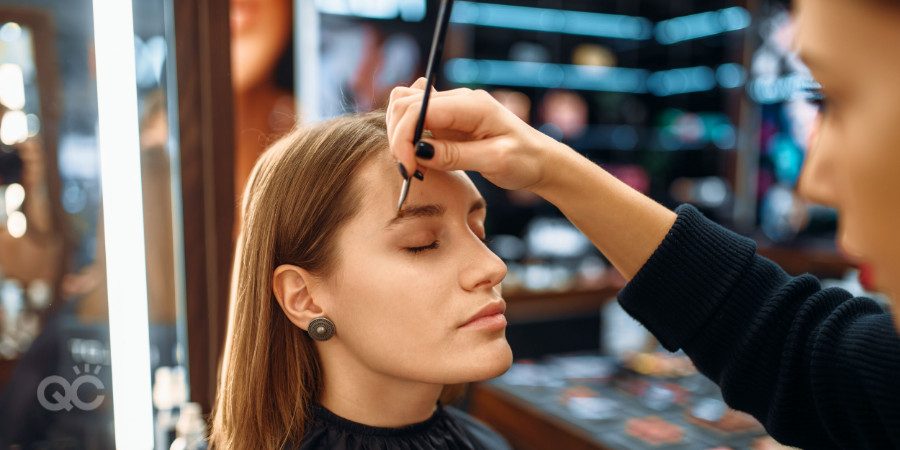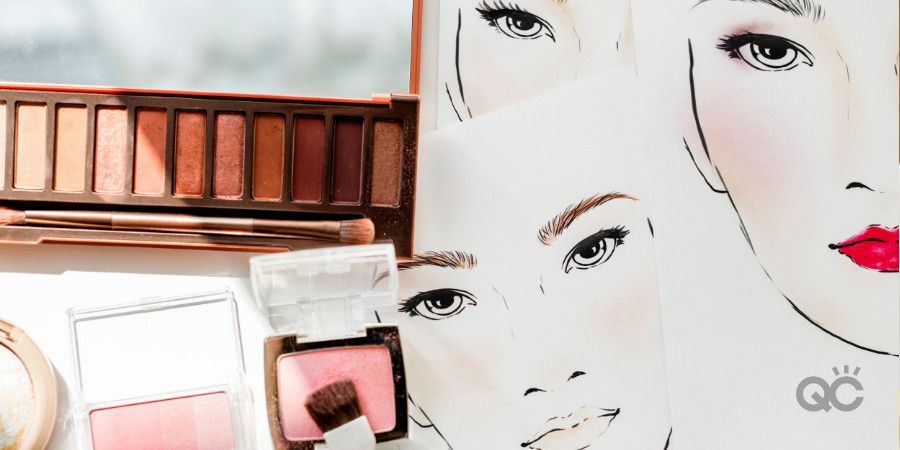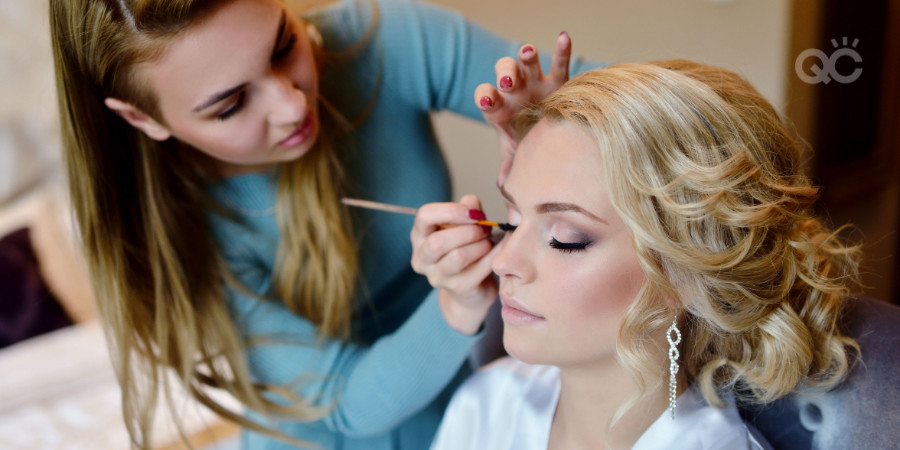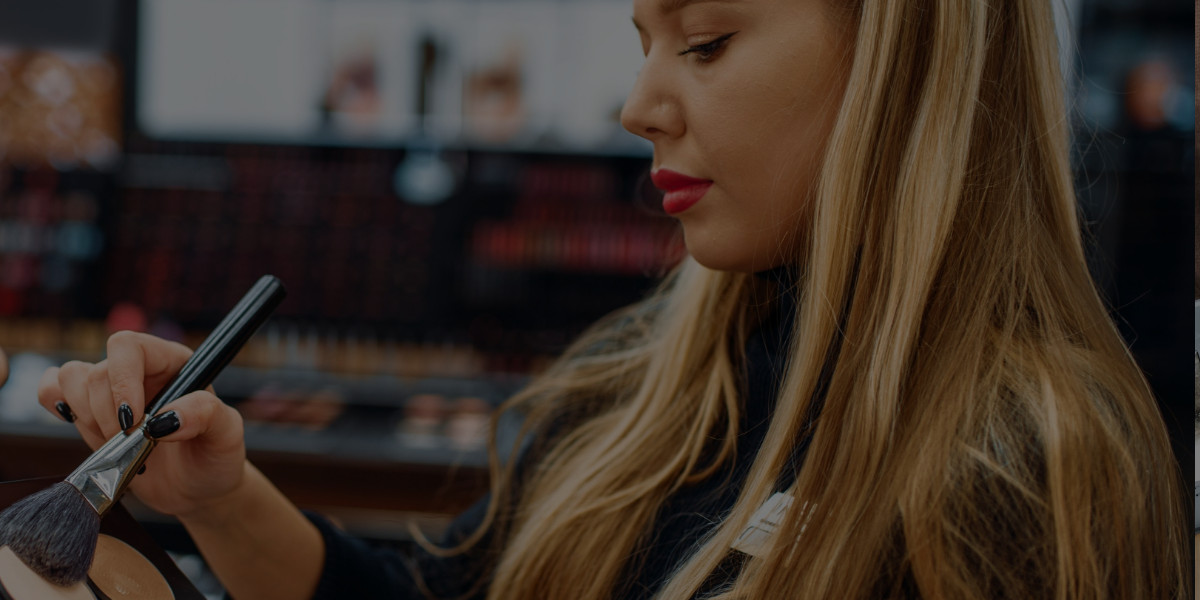Everyone often talks about the endless creativity and wonders of working in the world of makeup, but rarely will you see anything that speaks of the downsides. Like everything else, makeup artistry does have its cons – and knowing which negatives to expect will have you prepared to meet and deal with them.
Read on to find out more about unexpected downsides to being a makeup artist.

1. It takes time to build a client base.
No one starts in any business with a line of clients out the door. There can be a window of time between getting your education and earning consistent income.
Here are my 3 tips on how to build a client base and earn money:
1. Network while you are learning.
Contact every bridal salon, hair salon, party planner, wedding planner, photographer, and anyone else with a business that directly connects to the clients you want to work with. Share your talent and vision with them, establish relationships and, with some time and care, you’ll be the first person they recommend.
2. Contact local high schools, hair salons, etc., and inquire about doing inexpensive makeup demos and lessons.
Every week, you can teach a variety of classic techniques or trends that will appeal to a wide audience. Charging as little as $5 makes it affordable for everyone, and even if as few as 10 people come, you’ll still make $50 for the hour. Plus, you’ll meet new people who will recognize you as an artist and educator.

3. Use social media.
Beautiful images of your work and thoughtful uses of Facebook Live can really help to build an audience. With proper tagging, you can build an audience looking to hire someone with your skill and talent. Beautiful images will catch a potential customer’s eye, but when she sees examples of your work done live (even with aspects of it sped up to save time), she will see that you have diverse skills and that you do not rely on filters or retouching.
Because makeup is a freelance career, you are responsible for your income, so using the above tips can help you bridge the gap faster.
2. It is a competitive industry.
The fastest way to stand out in a competitive industry is to be skilled and to have a point of view.
3 tips to rise above the competition:
1. A solid education.
To be a master makeup artist, you must understand all the fundamental techniques and know how to change, shift, and transform them to meet the needs of your clients and the looks you are aiming to create.
Being a copy artist (one who recycles variations of generic YouTube artistry) makes you little more than an imitator; one of but thousands of others. To be a great artist, know the classical techniques and be able to apply them with precision and symmetry.

2. Never work from habit.
When you understand the fundamentals of makeup, you will apply every stroke with choice and reason, creating a look that is tailored to your client’s desires and structural needs. When you watch too many how-to videos instead of technique videos, the habit of copying will undoubtedly take over, causing you to work from habit and not to create something new and fresh.
As you work, ask yourself why you are choosing one technique over another. This will allow you to build unique looks for your client and not knock off those you’ve seen before. Habit is the killer of creativity.
3. Early Morning/Late Night Jobs.
Nothing is worse than a super early morning or a super late night, but when you have your own business, that can be par for the course. Commit with maximum effort – regardless of the time – and your clients will always know, without a doubt, that your results will parallel your great work ethic.

Pro tip: to be prepared for hideous hours.
Schedule your sleep. Keep a solid schedule and adjust accordingly so you can get your recommended eight hours. Film and TV jobs, brides, and editorials are a few of the jobs that can have tough hours, so scheduling your sleep will keep you well rested and ready to do your best work.
3. The business side.
Not all creatives like handling the business side of their careers. But for self-employed individuals, it’s mandatory. Schedules do not keep themselves, and the tax fairy will not descend to rescue you when tax time rolls around.
2 tips to keep your business in order:
1. Keep a calendar.
Double booking, improperly scheduling, and missing appointments/meetings are some of the most unprofessional – and reputation destroying – things we can do. A well-kept schedule will make that impossible.
There are many great software options, with some already available for free on many computers and phones, but a paper version works just as well. Just be sure to keep a second digital version in case your paper version gets misplaced.

2. Hire an accountant—and keep your receipts.
Accountants are really the way to go, since they know all about the deductions you are allowed to claim: from research, supplies, continuing education, and even the portion of your home that is your studio and workspace.
Your accountant will tell you exactly what can be deducted, so you’ll need to keep careful records of your receipts. Keep everything in order and your tax season will be painless and, because of proper accounting, perhaps rewarding.
Like any other career, makeup has its highs and lows. If you are prepared, you can make the highs higher and the lows, not as low. Keep an eye out on articles that talk about building your business and networking, and learn more tips to catapult you closer to success.
